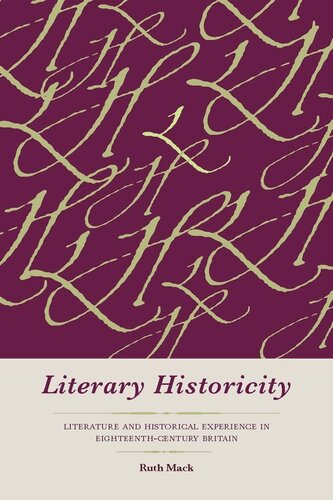

Most ebook files are in PDF format, so you can easily read them using various software such as Foxit Reader or directly on the Google Chrome browser.
Some ebook files are released by publishers in other formats such as .awz, .mobi, .epub, .fb2, etc. You may need to install specific software to read these formats on mobile/PC, such as Calibre.
Please read the tutorial at this link: https://ebookbell.com/faq
We offer FREE conversion to the popular formats you request; however, this may take some time. Therefore, right after payment, please email us, and we will try to provide the service as quickly as possible.
For some exceptional file formats or broken links (if any), please refrain from opening any disputes. Instead, email us first, and we will try to assist within a maximum of 6 hours.
EbookBell Team

0.0
0 reviewsLiterary Historicity explores how eighteenth-century British writers considered the past as an aspect of experience. Mack moves between close examinations of literature, historiography, and recent philosophical writing on history, offering a new view of eighteenth-century philosophies of history in Britain. Such philosophies, she argues, could be important literarily without being focused, as has been assumed, on questions of fact and fiction. Eighteenth-century writers—like many twentieth-century philosophers—often used literary form not in order to exhibit a work's fictional status but in order to consider what the relation between the past and present might be. Literary Historicity portrays a British Enlightenment that both embraces the possibility of historical experience and interrogates the terms for such experience, one deeply engaged with historical consciousness not as an inevitability of the modern world, but as something to be understood within it.